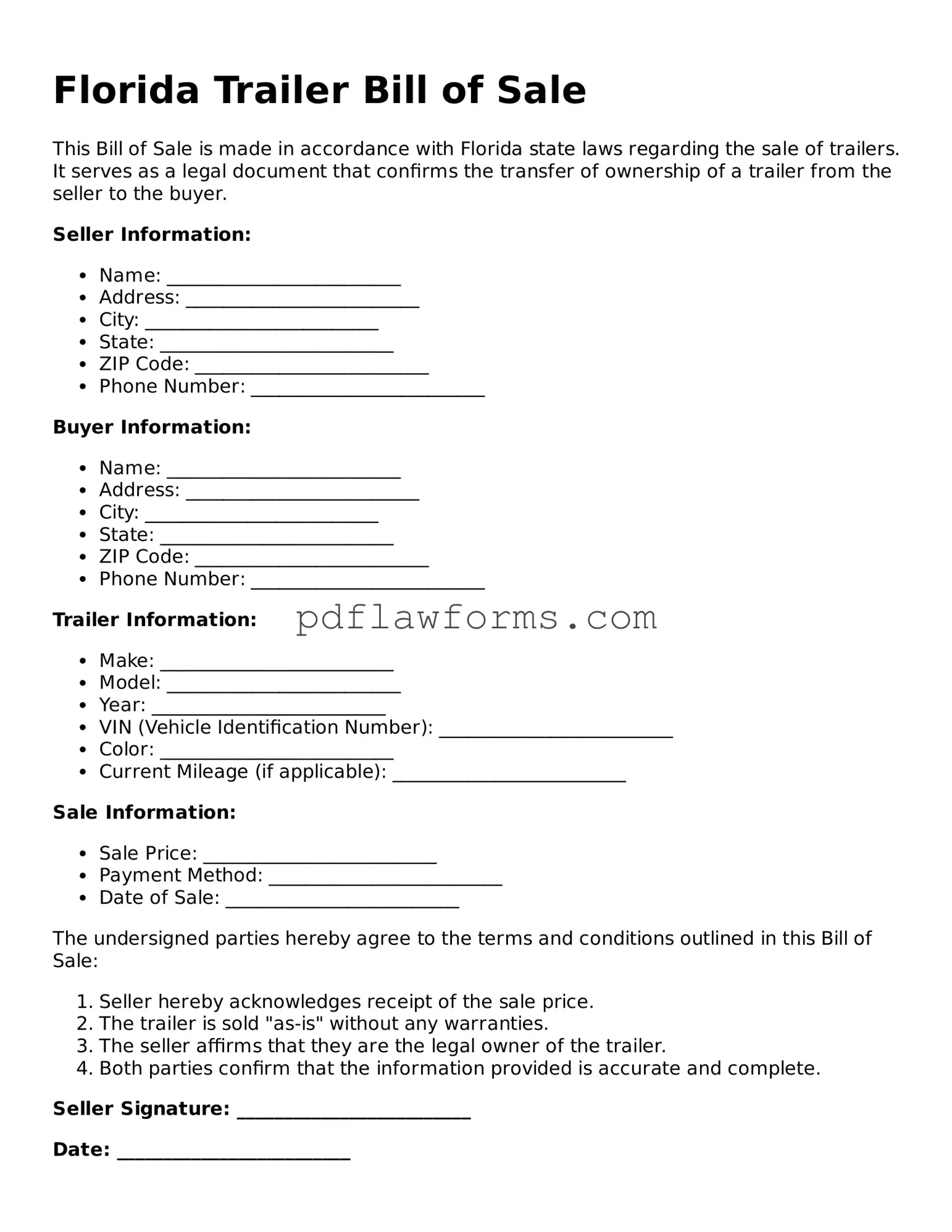Trailer Bill of Sale Form for the State of Florida
The Florida Trailer Bill of Sale is a legal document that records the sale of a trailer between a buyer and a seller. This form serves as proof of ownership transfer and includes essential details about the trailer, such as its identification number and sale price. To ensure a smooth transaction, it’s important to fill out this form accurately.
Ready to complete your trailer sale? Click the button below to fill out the form!
Make My Document Online

Trailer Bill of Sale Form for the State of Florida
Make My Document Online
You’re halfway through — finish the form
Edit and complete Trailer Bill of Sale online, then download your file.
Make My Document Online
or
⇩ Trailer Bill of Sale PDF
